- Home
- Janelle Taylor
Can't Stop Loving You Page 5
Can't Stop Loving You Read online
Page 5
No mail.
Not even junk mail.
Disheartened, he considered surfing the net for a while. Then, with a glance at Alan lounging on the couch two feet away and showing no hint of any other plan, Noah signed off abruptly and stood up. He might as well go to his room, where he could unwind in peace and relative quiet, now that the stereo volume was lower. Maybe later he would scrounge up something from the kitchen to eat or have a pizza delivered. It was almost nine, and he was too exhausted to go out, even just to pick up takeout.
“No e-mail?” Alan asked casually, opening his eyes again as Noah crossed the room and opened the door that led to his ten-by-twelve private space.
“Not tonight,” Noah replied. “I’m going to lie down in my room for a while.”
“Okay. I’ll see you later.”
I’m sure you will, Noah thought grimly as he closed the door behind him, unable to believe that his life had come to this.
As dusk settled over the quaint buildings nestled on Strasburg’s Main Street, Mariel emerged from the Sweet Briar Inn wearing the jeans, sweatshirt, and sneakers she had wished she had on earlier. She had spent the past few hours curled up on the bed, asleep. She had been so nervous about the trip that she had tossed and turned restlessly the past few nights back home, and exhaustion had finally caught up with her. Now, feeling slightly refreshed if no less apprehensive, she intended to find someplace to eat where she wouldn’t feel conspicuous dining alone.
Back home, nobody ever ate out alone, aside from the retirees who filled the stools at the local coffee shop, where the waitresses knew everyone and spent as much time chatting with the regulars at the counter as they did serving and clearing tables.
As she strolled away from the inn toward the row of shops and cafes, Mariel decided to buy a newspaper so that she would have something to look at while she ate. It should be such a simple thing for a grown woman to do: to eat solo in a restaurant.
But she couldn’t help feeling jittery about the prospect. Maybe it was because she was here, in Strasburg, after so many years of revisiting the place in her mind.
The town was more quaint than she remembered, she thought, as she walked beneath the leafy canopy of towering, centuries-old maples and oaks. Crickets were buzzing, and the air seemed more still, less chilly, than it had this afternoon. Maybe Susan had been right about the weather, although Mariel couldn’t imagine this part of New York State being in the grip of a heatwave. What she mainly remembered of the ten months she had spent here, aside from the glorious autumn when she had fallen in love with Noah, was snow, snow, and more snow. Snow that started the first week of November and lasted into April.
By the time the weather warmed, she had been hugely pregnant and spent most of her time indoors, staring at the wall, contemplating the decision she had made about the baby—the decision she intended to stick to, no matter what.
And she had.
She realized that she was in front of a small stationery and tobacco store that sold magazines and newspapers. It was right next door to a small cafe with tables out on the sidewalk. A few of them were occupied, but it appeared to be the kind of quiet, casual place she was looking for. She decided to buy something to read and head over.
Two minutes later, she was seated at a small, round table located right next to the sidewalk, her back to the other patrons. The hostess hadn’t seemed fazed that Mariel had asked for a table for one, but she couldn’t help feeling self-conscious dining solo.
A good-looking college student-type appeared beside her table. “Hi, my name is Kevin and I’ll be your waiter tonight. Are you waiting for somebody to join you, or…?”
“No, I’m here alone,” Mariel said uncomfortably, glancing over her shoulder toward the couples at the other tables. She realized that most of them were young—undoubtedly students spending the summer semester at college.
She pushed aside the wistfulness that crept in and turned her attention to the waiter, who was telling her about the specials. She ordered a pasta dish and a glass of white wine, then unfolded the local newspaper and scanned the front page.
Not much national or international news here, she noticed—how like the Rockton Gazette back home. Apparently, small towns everywhere were more caught up in local issues than global ones. Mariel skimmed an article about an upcoming controversial zoning board hearing and one about scholarship winners who had just graduated from Strasburg Central High School. She flipped to the second page and read through incidents listed in the police blotter section—a runaway dog, a shoplifting incident at the 7-Eleven, and a couple of fender benders.
Her wine arrived as she was reading the letters to the editor on page four. She took a sip of the cool, tangy sweetness, thinking she should have bought additional reading material. At this rate, she would be finished with the entire newspaper before her salad arrived.
As she turned her attention to the next page, a name jumped out at her, and her breath caught in her throat.
Amber Steadman.
She had glimpsed it almost subconsciously and assured herself that she had to be mistaken as she scrutinized the print, searching for it again.
But she hadn’t been wrong.
There it was.
Amber Steadman.
In the lead paragraph beneath a headline that read
VALLEY FALLS GIRL REMAINS MISSING.
The next few hours were a blur for Mariel.
She had made some excuse to the waiter and left the cafe after paying for her meal, turning down his offer to wrap the salad and pasta for her to take with her. She had absolutely no appetite left.
She returned to the newsstand and bought a copy of every other local newspaper she could find, including the bigger ones from Syracuse, Binghamton and Utica.
Back in her room, she combed through them page by page, line by line, searching for more information on the missing Valley Falls teenager. But there was nothing else, aside from an article in the Valley Falls Ledger that basically recapped what she had read back at the cafe.
Amber Steadman had disappeared more than a week ago without a trace. She had been last seen leaving for school. There was no evidence of foul play, but the police were working with her frantic parents to track down any possible leads. A hotline number had been set up, and the parents were offering a reward for information leading to her safe return.
Now, seated at a microfiche machine in the nearly empty Strasburg college library, Mariel had spent the past hour scanning previous issues of the local newspapers for stories about the disappearance. It had made the front page headlines in all of the papers, accompanied by photos of Amber, and one, in the Valley Falls Ledger, of her parents. Carl and Joanne Steadman were a moderately attractive middle-aged couple—Carl balding with glasses, Joanne petite with short blond hair. The strain of their ordeal was evident in the photo, which had apparently been snapped outside police headquarters. They looked like distraught, worried parents.
Ever since she had found out about Amber’s disappearance, a growing sense of panic had taken hold inside of her. What if Amber had been abducted by one of those twisted serial killers she occasionally heard about—the kind that preyed upon teenaged girls? What if she had been raped, tortured, killed?
Mariel felt sick as one horrific scenario after another played through her mind, and she realized that for Carl and Joanne Steadman, the nightmare was hundreds, thousands of times worse. Mariel might be Amber’s birth mother, but Carl and Joanne were the ones who had raised her, nurtured her, protected her, loved her.
Or had they?
In several accounts covering the story, there was mention of the fact that the police suspected that Amber might not have been abducted. Some of her possessions were missing, and more than one of her schoolmates had told a detective that Amber had been talking about running away.
Mariel sat staring into space, her arms wrapped around her churning middle as she contemplated that. Why would Amber have run away?
Could it possibly have any
thing to do with the fact that she had e-mailed Mariel and gotten no response?
Logically, Mariel didn’t see how that could possibly be the case. Amber didn’t know that she was her birth mother—only that it was possible. Surely if Amber was that upset about not hearing back from her, she would have contacted her again.
But even if that hadn’t been the reason Amber had run away—if she had even run away—could it have contributed somehow to the situation? What was Amber running from? What had led her to contact Mariel in the first place? And would she still have run away if Mariel had written back to her, or called her, instead of waiting until now?
Her mind whirling, Mariel turned off the microfiche machine and pushed back her chair. She had to do something. She couldn’t just sit here reading about her daughter’s disappearance. She had to see if she could help.
But how?
Should she call the police? If she did, she realized, they might suspect that she had something to do with Amber’s disappearance. Of course they would. They would find it coincidental that she turned up in town now, after years of silence…wouldn’t they?
But it wasn’t coincidental. Amber had contacted her out of the blue, possibly because Amber was troubled. That made sense. If something had been bothering her—especially something involving her home life—she might fantasize about her birth mother coming to the rescue.
Well, Mariel had failed miserably there.
But she wasn’t the only birth parent Amber might have tried to find.
Noah’s name had been on the adoption papers. Whatever source had led Amber to Mariel could also have led her to Noah. Had she tried to contact him, too?
Had she found him, too?
Mariel walked slowly through the maze of study carrels, finding her way back to the reference desk, where a lone librarian was on duty. The place was nearly deserted at this hour on a Friday evening in June.
“Excuse me,” she said to the woman behind the desk, who had earlier shown her how to use the microfiche machine. “I was wondering if you would mind helping me again?”
“I don’t mind,” the woman said, “but I do have to remind you that the library is closing in ten minutes.”
“Oh, no.”
“I’m sorry.” She offered a sympathetic smile. “We have abbreviated hours at this time of year. But you can always come back in the morning. We open at—”
“No, actually, this shouldn’t take long, if you can point me in the right direction. I need help locating somebody. He went to Strasburg, actually, so maybe there’s some kind of alumni data base that would list current addresses and phone numbers?”
“There is, but he would most likely be listed there only if he graduated. Did he?”
“I don’t know,” Mariel admitted. She had no idea what had ever become of Noah after he walked out of that hospital room on the Fourth of July fifteen years ago. Now she was struck by the realization that with any luck, she was about to find out.
“Well, we can start there,” the woman said, rising and walking toward a bank of computer terminals.
Minutes later, Mariel was staring at a listing on the screen. According to this, Noah Lyons lived on Broadway in New York City. There was no phone number, but an e-mail address was provided. That was it. No marital status or family or employment information.
Well.
He was still in New York.
“Do you think this is the person you were looking for?” the librarian asked.
Startled, having forgotten she wasn’t alone, she nodded. “I’m sure it is.”
“If you want to take a moment to copy down the information…” The woman looked pointedly at her watch.
“I’ll do it quickly,” Mariel promised, and the woman smiled briefly before walking away.
Mariel fumbled in her bag for a pen and something to write on.
Are you married, Noah?
Do you have children?
What kind of job do you have? Are you happy? Do you ever think about me?
Tears blurred her eyes as she scribbled the information onto the back of a cash machine withdrawal receipt. She wasn’t prepared for this flood of emotion, nor was she prepared to contemplate speaking to Noah again.
So, instead of contemplating it, she acted—before she could have time to change her mind.
The computer had Internet access. She hurriedly got on-line and typed Noah’s e-mail address into a blank letter, then sat there, fingers poised over the keyboard, wondering what to write.
“Ma’am? We’re closing now,” the librarian called politely from her desk.
“All right, I’ll be finished in a second,” Mariel murmured, beginning to type. Her fingers flew over the keys as sections of overhead lights began to click off around her. She didn’t bother to reread the message, just hit Send and pushed back her chair.
“Did you find what you needed?” the librarian asked as Mariel scurried toward the door, where a second librarian stood waiting, jangling a key ring impatiently.
She could only nod, her throat too choked with emotion to respond.
CHAPTER THREE
“Another Saturday night, and I ain’t got nobody…” Noah stopped singing the old Cat Stevens tune as he opened the fridge and took out a beer. He twisted off the cap, admiring the mist that swirled from the neck of the green bottle. Then, wiping a trickle of sweat from his right temple, he carried the beer into the living room and sat on the sill in front of the open window, hoping for a breeze.
No such luck.
It was hotter than hell in this apartment, and thanks to Kelly, he no longer had the window air conditioner units that had cooled down the entire place in summers past. The heat and humidity had moved in from the west, striking the city just as the sun came up this morning. After meeting his friend Danny for a racquetball game, Noah had spent the afternoon at his mother’s apartment, tinkering with an old floor fan that she couldn’t get to work. Nothing he did could salvage it, and he wound up going with her to Duane Reade so that she could get a new one.
He would go buy a fan for himself, too—tomorrow. He was too hot and exhausted to go in search of one now and then lug it home through the streets.
He sat with his back leaning against the window frame, one knee bent and his foot on the sill. He took a big gulp of the cold beer and looked out over Broadway below, listening to the traffic and watching people walking along the sidewalk that teemed with people at every hour of the day.
He wondered, as he had been prone to wondering lately, what it would be like to live someplace else. Someplace where peace and quiet didn’t cost more than he could afford on a nearly six-figure salary. Where he wouldn’t be in a constant state of exhaustion, and could actually get some writing done.
But tonight, if it weren’t for the heat, he would have almost been content for a change. Alan was out, so he finally had the apartment to himself. He liked to stay in on Saturday nights, relishing the lazy hours at home, knowing he didn’t have to rise early with an alarm the next morning.
When he was married, Kelly had planned almost every minute of every weekend. There were parties and art gallery openings and dinners out with friends—nearly always her friends and their boring spouses, at pretentious restaurants where minuscule entrees were presented on enormous white plates with adroitly placed green sprigs or scrolls of artfully dribbled sauce.
When he was in the mood to go out, Noah liked pizza and spaghetti and Mexican food, and he liked noisy, crowded places where he could wear jeans and drink beer from a bottle or sip a strong frozen drink.
Tonight, he had been invited to join Austin, one of the copywriters at work, and his wife, who were going to a nearby cabaret with some friends. Considering the way Austin had asked several times yesterday if Noah was absolutely sure he wasn’t interested, Noah had assumed that the friends included unattached females.
Austin wasn’t the only one who seemed inclined to believe that Noah was sitting around moping and lonely now that Kelly had lef
t him. Several of his friends had extended invitations for blind double dates lately, and Danny, still happily single at thirty-five, had tried to talk him into taking a half share in a house in the Hamptons for the summer. He had heard about Danny’s summer escapades for a few years now and wasn’t the least bit tempted by the promise of wild nights in clubs with beautiful, promiscuous women.
He was too damned tired for that.
Not necessarily physically—because the truth was, he ached to hold a woman, to make love again after months of celibacy.
But emotionally, he just couldn’t handle the party scene—the fleeting, meaningless flings that had never even appealed to him in his college days. That wasn’t where he had expected—or wanted—to be at this stage of his life.
He sighed, drained the beer, and went to the fridge for another. As he pushed aside the cartons of take-out Chinese left over from dinner a few nights ago, he realized that there was only one beer left from the sixpack he had bought recently on the way home after a particularly trying day at the office. There should have been three.
Obviously, Alan had helped himself.
Terrific.
Noah would have to have a talk with him about sharing the grocery expenses. That, too, was something he hadn’t expected to be doing at this stage of his life. Dealing with roommates was something a student did while away at school, or a young adult just starting out in the city. He was a grown man with a corporate job—he shouldn’t be living like this.
Christ, he thought grimly, opening the last beer, how many times was he going to be astonished all over again that this was how his life had turned out? The reality of his world seemed to catch him off guard several times a day. One would think, sooner or later, that he would be used to it. But he wasn’t.
He returned to the living room and glanced at the pile of half-written screenplays on the floor by the computer. He could work on one…
No, he couldn’t.
He was too drained to create.
Noah restlessly turned on the television. He flipped channels on the remote, marveling that the renowned Manhattan cable television system, with more than a hundred stations, was showing nothing that captured his interest.

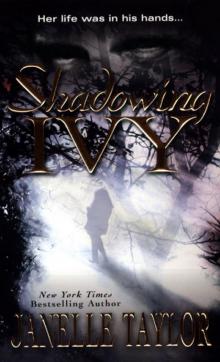 Shadowing Ivy
Shadowing Ivy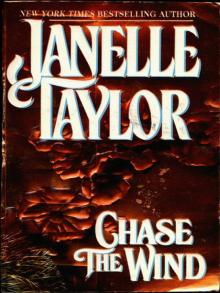 Chase The Wind
Chase The Wind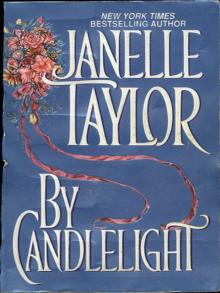 By Candlelight
By Candlelight Kiss of The Christmas Wind
Kiss of The Christmas Wind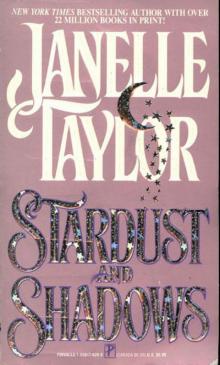 Stardust And Shadows
Stardust And Shadows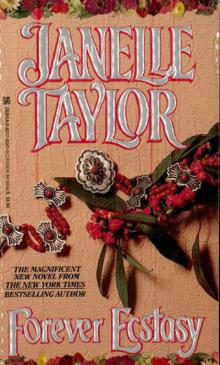 Forever Ecstasy
Forever Ecstasy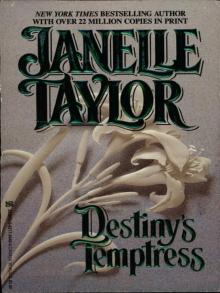 Destiny's Temprtress
Destiny's Temprtress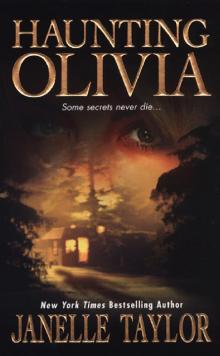 Haunting Olivia
Haunting Olivia Wild Is My Love
Wild Is My Love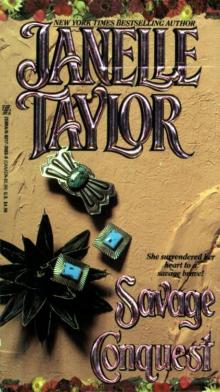 Savage Conquest
Savage Conquest Valley of Fire
Valley of Fire A Christmas Surprise
A Christmas Surprise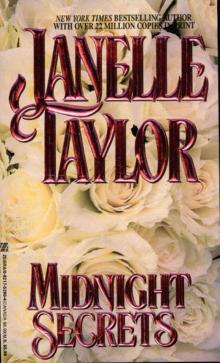 Midnight Secrets
Midnight Secrets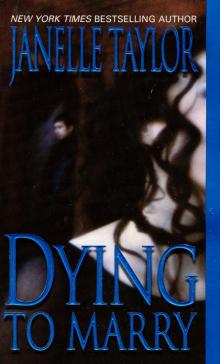 Dying To Marry
Dying To Marry Brazen Ecstasy
Brazen Ecstasy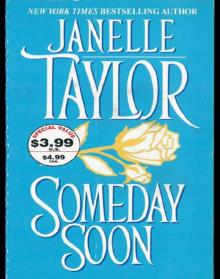 Someday Soon
Someday Soon Savage Ecstasy
Savage Ecstasy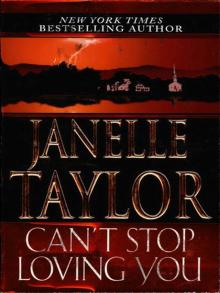 Can't Stop Loving You
Can't Stop Loving You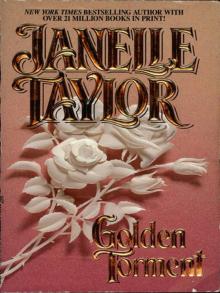 Golden Torment
Golden Torment Forbidden Ecstasy
Forbidden Ecstasy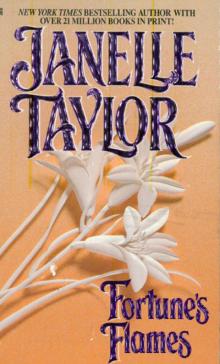 Fortune's Flames
Fortune's Flames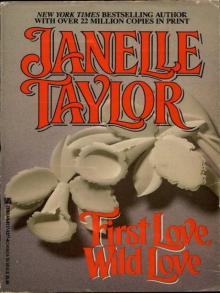 First Love Wild Love
First Love Wild Love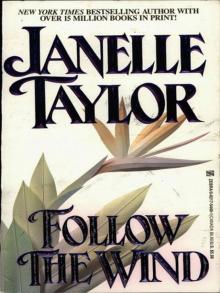 Follow The Wind
Follow The Wind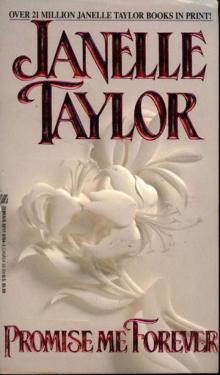 Promise Me Forever
Promise Me Forever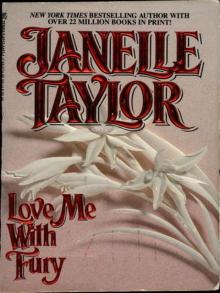 Love Me With Fury
Love Me With Fury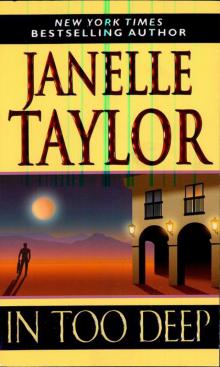 In Too Deep
In Too Deep Lakota Winds (Zebra Historical Romance)
Lakota Winds (Zebra Historical Romance)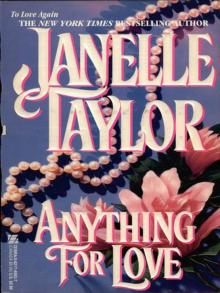 Anything For Love
Anything For Love Cherokee Storm
Cherokee Storm Straight From The Heart
Straight From The Heart Don't Go Home
Don't Go Home Wild Winds
Wild Winds Tender Ecstasy
Tender Ecstasy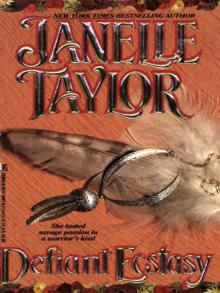 Defiant Ecstasy
Defiant Ecstasy Defiant Hearts
Defiant Hearts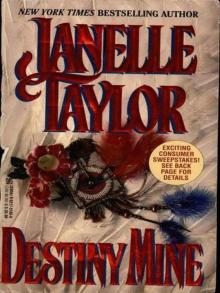 Destiny Mine
Destiny Mine Lakota Flower
Lakota Flower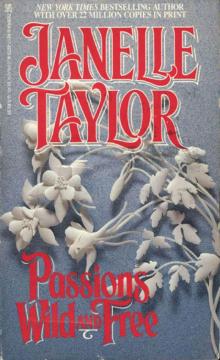 Passions Wild And Free
Passions Wild And Free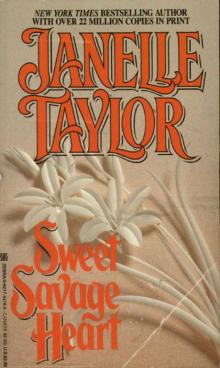 Sweet Savage Heart
Sweet Savage Heart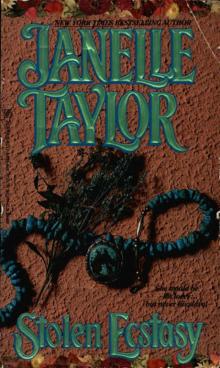 Stolen Ecstasy
Stolen Ecstasy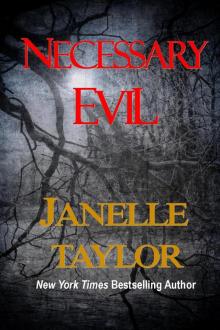 Necessary Evil
Necessary Evil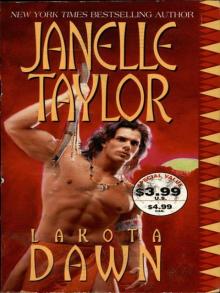 Lakota Dawn
Lakota Dawn